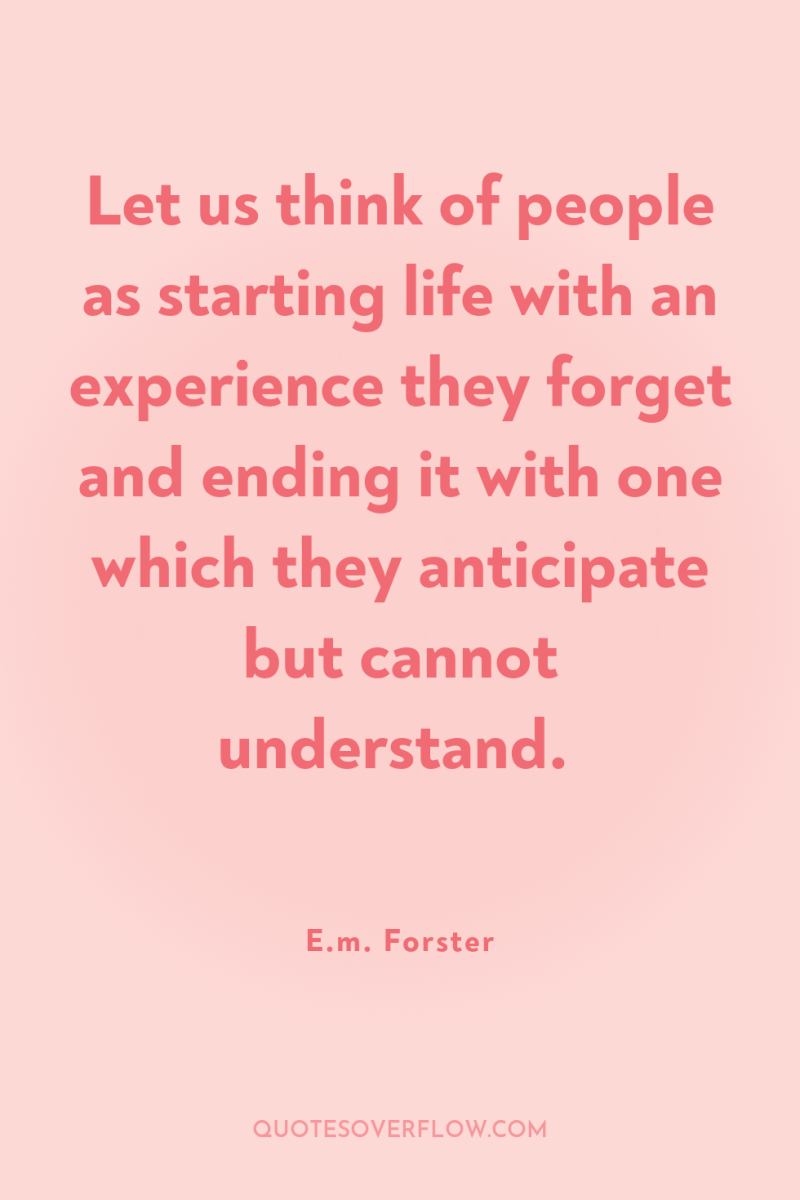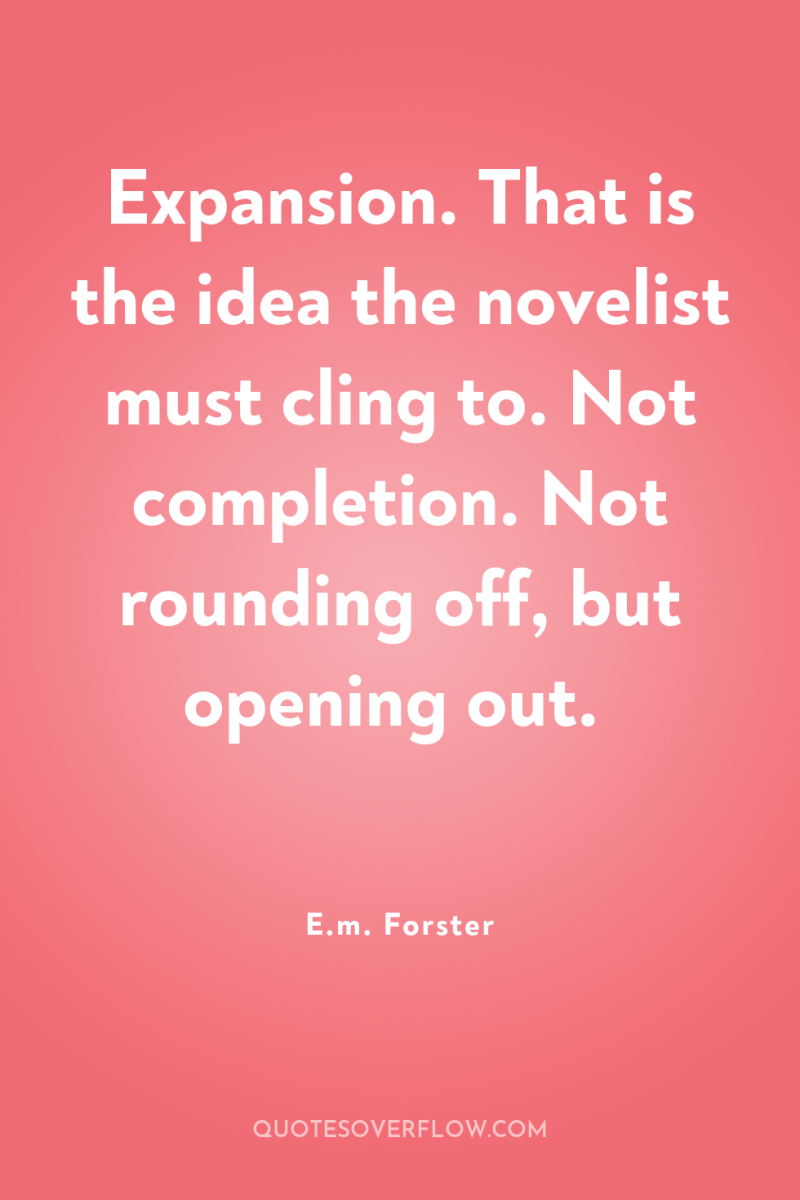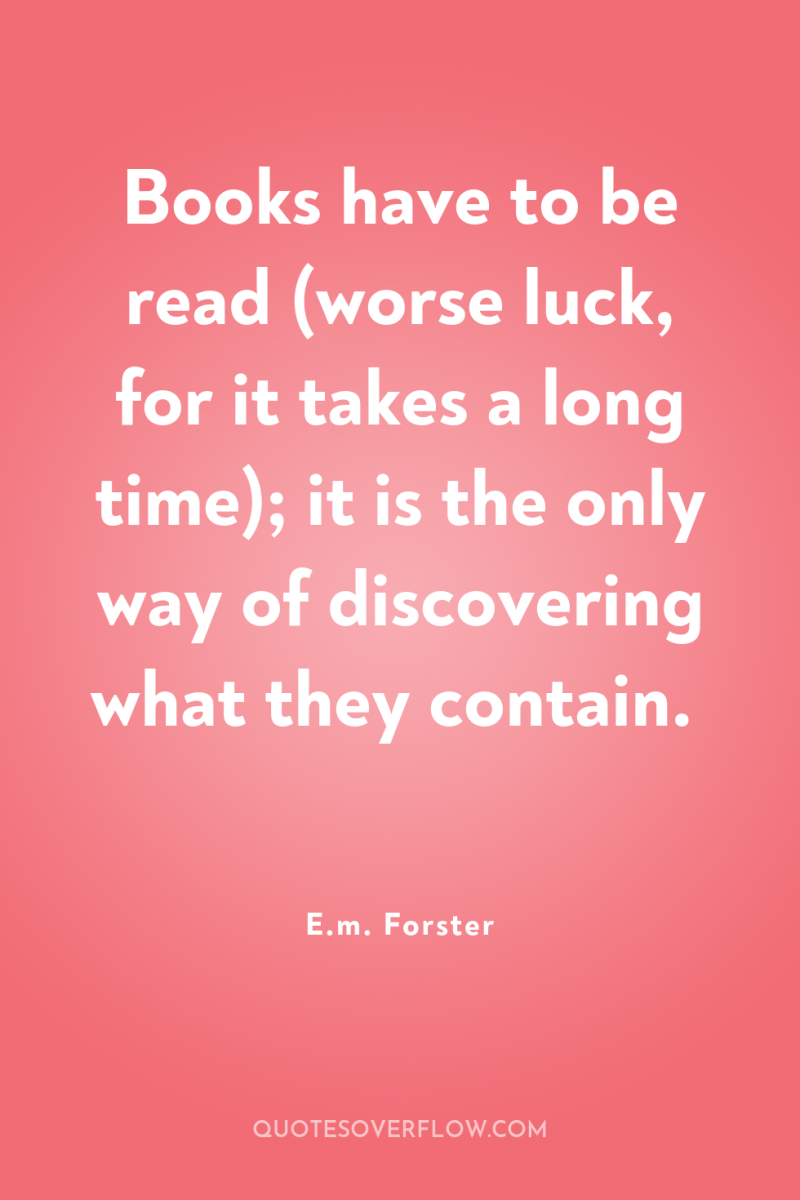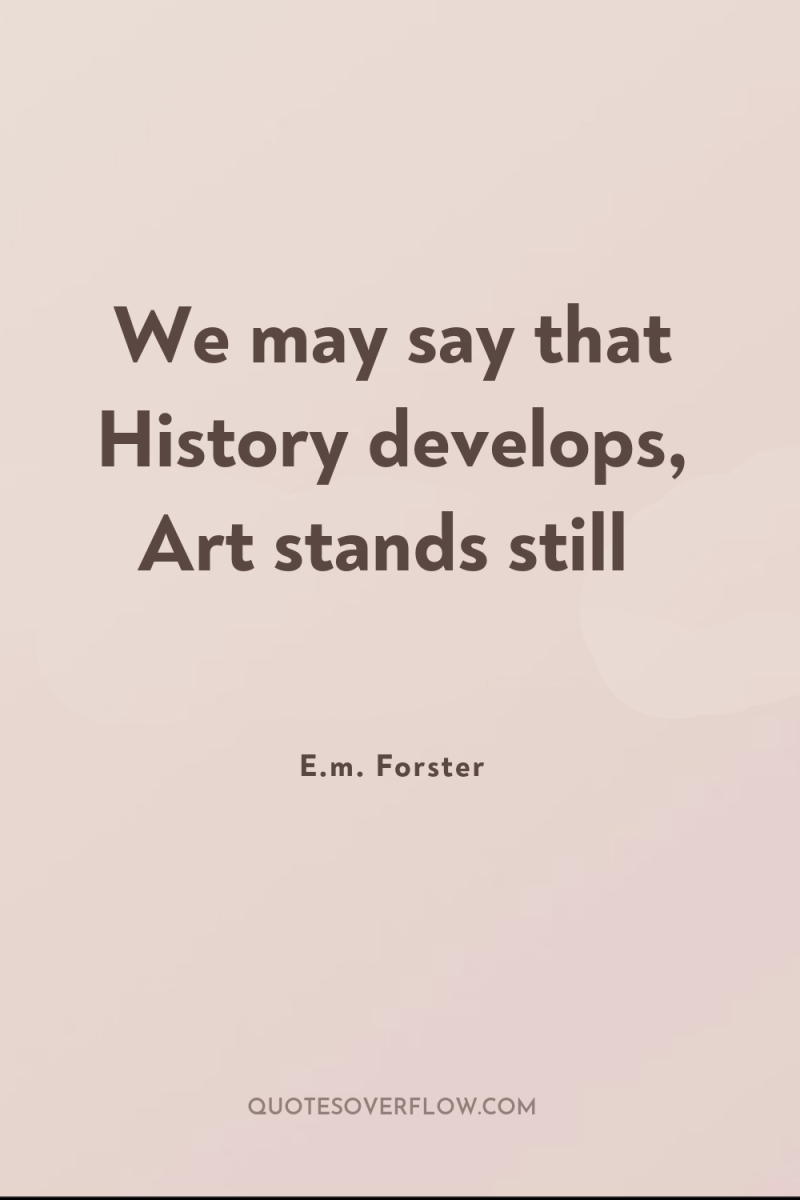1
The human mind is not a dignified organ, and I do not see how we can exercise it sincerely except through eclecticism. And the only advice I would offer my fellow eclectics is: "Do not be proud of your inconsistency. It is a pity, it is a pity that we should be equipped like this. It is a pity that Man cannot be at the same time impressive and truthful.E.m. Forster

2
Let us think of people as starting life with an experience they forget and ending it with one which they anticipate but cannot understand.E.m. Forster

3
Expansion. That is the idea the novelist must cling to. Not completion. Not rounding off, but opening out.E.m. Forster

4
Books have to be read (worse luck, for it takes a long time); it is the only way of discovering what they contain.E.m. Forster

5
We may say that History develops, Art stands stillE.m. Forster
6
Long books, when read, are usually overpraised, because the reader wishes to convince others and himself that he has not wasted his time.E.m. Forster
7
We move between two darknesses.E.m. Forster
8
Human beings have their great chance in the novel.E.m. Forster
9
Unless we remember we cannot understand.E.m. Forster
10
Food, the stoking-up process, the keeping alive of an individual flame, the process that begins before birth and is continued after it by the mother, and finally taken over by the individual himself, who goes on day after day putting an assortment of objects into a hole in his face without becoming surprised or bored.E.m. Forster
11
Most of us are pseudo-scholars..for we are a very large and quite a powerful class, eminent in Church and State, we control the education of the Empire, we lend to the Press such distinction as it consents to receive, and we are a welcome asset at dinner-parties. Pseudo-scholarship is, on its good side, the homage paid by ignorance to learning. It also has an economic side, on which we need not be hard. Most of us must get a job before thirty, or sponge on our relatives, and many jobs can only be got by passing an exam. The pseudo-scholar often does well in examination (real scholars are not much good), and even when he fails he appreciates their inner majesty. They are gateways to employment, they have power to ban and bless. A paper on King Lear may lead somewhere, unlike the rather far-fetched play of the same name. It may be a stepping-stone to the Local Government Board. He does not often put it to himself openly and say, "That's the use of knowing things, they help you to get on." The economic pressure he feels is more often subconscious, and he goes to his exam, merely feeling that a paper on King Lear is a very tempestuous and terrible experience but an intensely real one..As long as learning is connected with earning, as long as certain jobs can only be reached through exams, so long must we take the examination system seriously. If another ladder to employment were contrived, much so-called education would disappear, and no one be a penny the stupider. .E.m. Forster